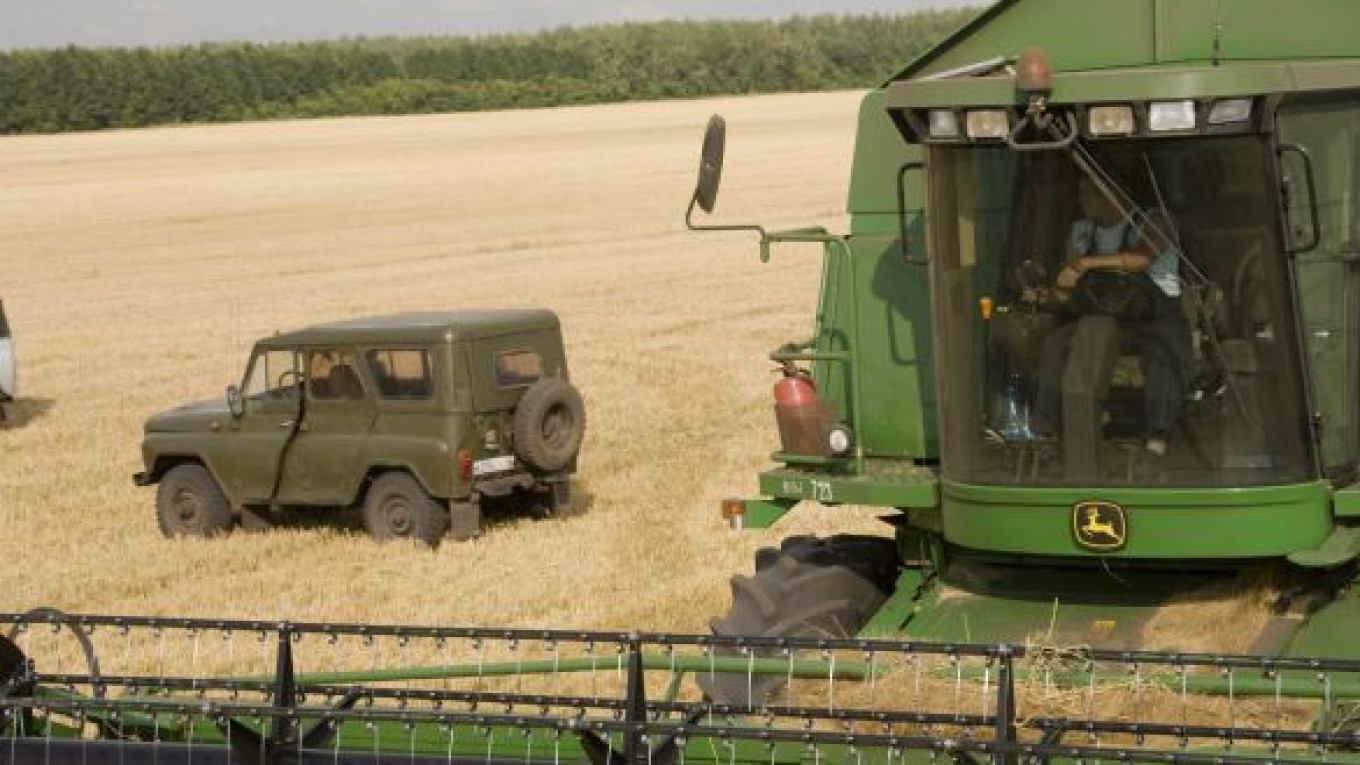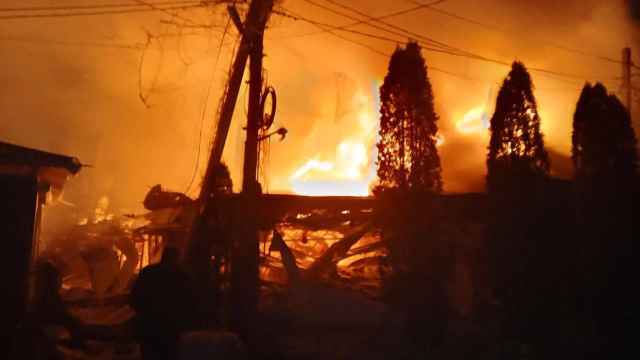Soon after John Deere started selling construction machines here, they gained a presence at one of the country's biggest building sites.
It was the area outside Moscow where electricity giant RusHydro began building its hydraulic accumulator power station in 2008.
"It's the largest earth-moving project I have ever seen in my life," said Thomas Trone, John Deere's outgoing director for Russia.
John Deere crawlers, trucks and motor graders reinforced the machine force at the site, which now totals 500 units, in 2010. The U.S. company sold its first construction equipment here in August 2008.
RusHydro is building two artificial lakes near the town of Sergiyev Posad, one above the other, to move the water between them. Since electricity tariffs are lower at night, the pumps will lift the water to the upper lake at that time. It will rush back down by day, turning turbines and generating power when the company can charge customers more.
It wasn't all smooth sailing for John Deere. Russia's biggest construction project— the development of the Black Sea resort of Sochi to host the winter Olympics in 2014 — proved a hard nut to crack.
"We don't do a lot of work there," Trone said in an interview. "It's a very closed community of contractors."
The company is hoping for a greater share in the preparations that are yet to begin for the football World Cup that Russia is hosting in 2018, he said.
Rising demand and brand awareness boosted construction equipment sales tenfold last year, compared with 2010, the company said. Trone didn't disclose the number of units sold, saying only that it was in the thousands last year.
John Deere also sells forestry machines here and has been hawking agricultural equipment in Russia for decades. About 10 percent of the total it sold last year rolled off the assembly line it built in Domodedovo, a town outside Moscow, where production started in April 2010. The rest came from its plants in the United States, Canada and Finland.
One reason for the low local production level is the distrust that Russians appear to have for all things made inside the country.
"When you tell a Russian customer a product was made in Russia, it's not a good thing," Trone said. "The impression is that you don't always find the best quality here."
Nevertheless, Domodedovo output has doubled since the get-go. And the company is looking for a site for another domestic plant.
John Deere intends to double construction machine sales this year, unless the Greek debt crisis pulls Europe and Russia into a whirl of another economic debacle. Russian customers, as yet, show no sign of budget-driven restraint in their appetite for the equipment.
"They are always nervous, but still buying," Trone said.
A Message from The Moscow Times:
Dear readers,
We are facing unprecedented challenges. Russia's Prosecutor General's Office has designated The Moscow Times as an "undesirable" organization, criminalizing our work and putting our staff at risk of prosecution. This follows our earlier unjust labeling as a "foreign agent."
These actions are direct attempts to silence independent journalism in Russia. The authorities claim our work "discredits the decisions of the Russian leadership." We see things differently: we strive to provide accurate, unbiased reporting on Russia.
We, the journalists of The Moscow Times, refuse to be silenced. But to continue our work, we need your help.
Your support, no matter how small, makes a world of difference. If you can, please support us monthly starting from just $2. It's quick to set up, and every contribution makes a significant impact.
By supporting The Moscow Times, you're defending open, independent journalism in the face of repression. Thank you for standing with us.
Remind me later.






